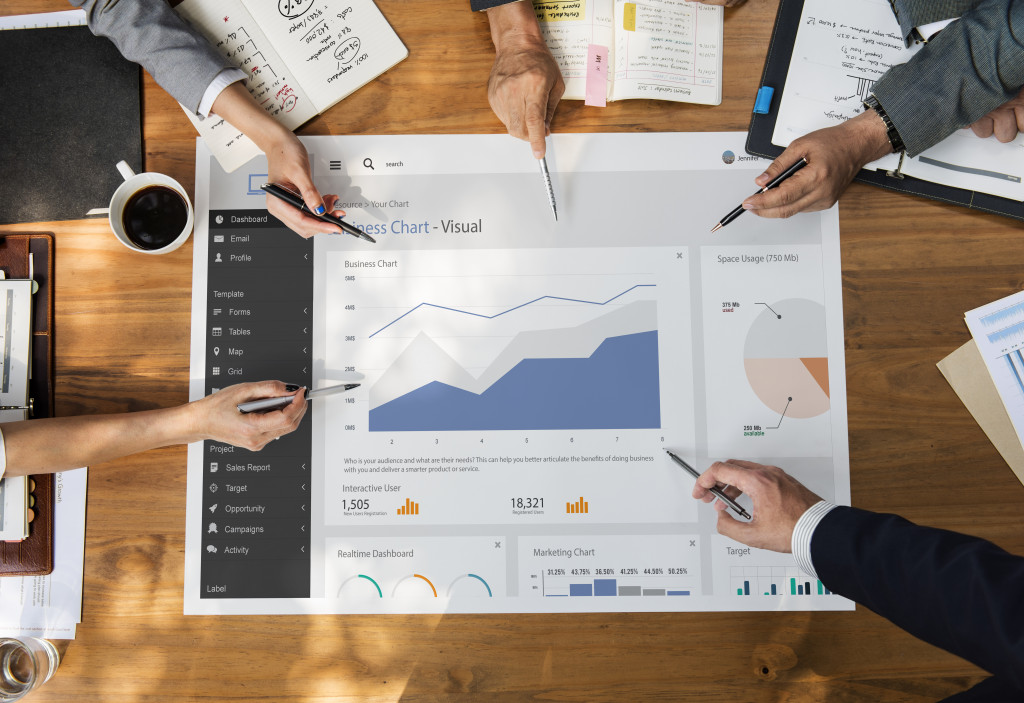It seems that the more years pass, the more we are inundated with data that allows us to better understand the people around us, the businesses we patronize, and the customers we serve. The benefits of using data are not lost on businesses. In a survey, more than 49% of the respondents said that analytics helps them make better decisions and policies. The remaining 51% rely on data for strategy and to improve customer experience and relations.
How important is data? Even small businesses have data on their arsenal. In fact, big data may even be more suited for small businesses because they are able to act faster. They are more agile as there are no complex processes that they have to go through. This is unlike big businesses and conglomerates that have to go through procedures to make new campaigns or change a strategy.
How to Make Better Decisions and Policies with Data?
When running a business, managers now use predictive analysis in finance to make better policies that will support the goals of the organization. If your business is now using predictive analysis, then you have a better chance of succeeding in the years to come. The process uses data generated from past sales and projections to “predict” where your business will likely be in the future. It can predict revenues, supply chain risks, loss drivers, and fraud.
With this information on hand, businesses can proceed with caution when making new investments and starting new marketing campaigns. They can tailor-fit advertising materials for the market they intend to reach. They can analyze trouble spots that will be detrimental to the business and its customers. Internally and externally, data will allow you to detect potential frauds and address these risks immediately.
Solving Problems
Are you worried that your sales have been fluctuating? What could be the cause of this? Under normal circumstances, it’s hard to pin the exact point where there could be problems that affect the business. There have always been bad and good months in business. But with the availability of data, it has become easier to uncover the areas where the marketing campaigns are failing. Is it not reaching the intended audience? Is the target market not reacting positively to the campaign?
These days, it takes minutes to find out what’s wrong with a marketing campaign and why your sales are declining steadily. It also takes minutes to find out if an intervention will work or not. Changing the parameters and testing the outcome of a campaign, for example, can make you see into the future. Is what you’re thinking going to change the course of your sales performance?

Understanding Performance
The best example of using analytics in business is in how sports teams improve after reviewing their performances in the previous games. They use the numbers they collect to see potential errors and gaps. They make sense of a loss or a win because of these numbers. Why did a basketball team win? It’s because somebody on the defense side stepped up and stopped a shooter. Why did a team lose? It’s because its star player had a 23% shooting and no one else had a good night.
Performance data is not that simple, though. When presented with two sales representatives, the one with the higher sales might be up for promotion, but delving deep into the data will also show you that this agent is offering deals at a lower percentage than the one with fewer closed deals. What does it mean for the business? It means that the company is gaining more from these fewer closed deals that are sold at a higher percentage.
Improving Experience
Finally, the most important contribution of data-driven processes is the improvement in customer experience. Data helps businesses understand consumers—their needs, wants, and demands. If the customers are not responding well to a campaign or a product launch, data will give you the reason why. Is it the price point? Is it because others are offering the same product or service?
Even before you make a product or service available for consumption, you have to look at the data first to ensure its success. Data is the key to understanding your consumers and more so, to improve their experience when they interact with your brand. In turn, this is going to bring your business to success.
The best-run companies are driven by data. They rely and depend on the data to guide them in making smarter decisions for their organizations. Data analytics is now a needed skill set in business and any business that does not use data is bound to fail.

